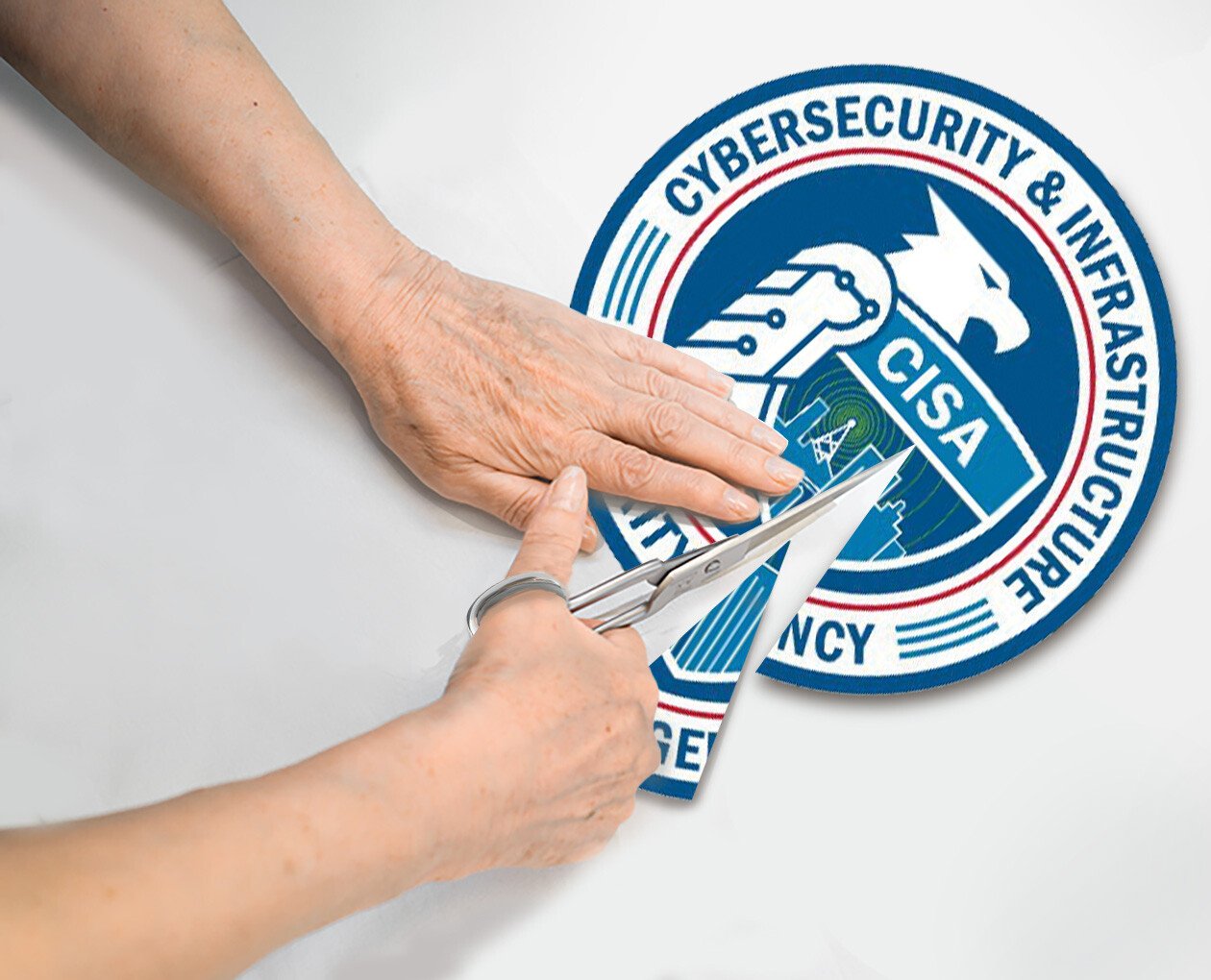Blockchain technology has been a buzzword in recent years, often associated with cryptocurrency and financial transactions. However, its potential extends far beyond these applications.
It’s becoming an essential technology, with its global market size expected to hit $1.43 US trillion by 2030. Among many other applications, this technology has the power to revolutionize the way we manage and secure data across various industries, including healthcare, finance, and supply chain management.
This article will discuss the untapped potential of blockchain technology in enhancing cybersecurity beyond its association with cryptocurrency.
What is Blockchain?
Blockchain is a digital ledger technology that records and stores data in a decentralized manner across a network of computers. It is often referred to as a "chain" because each block of data is linked to the previous block through a unique alphanumeric code called a hash. This creates a chronological sequence of data that is tamper-proof and immutable.
Imagine a spreadsheet shared among multiple people, each with a copy. Whenever a new transaction is added, it is verified by all the people in the network before being added to the spreadsheet.
This ensures that everyone has the same version of the spreadsheet, and no single person can alter the data without the others noticing. This makes it a great way to deal with online threats such as ransomware.
The benefits of Blockchain in cybersecurity
While blockchain technology is not a panacea for all cybersecurity challenges, its unique features and benefits make it a valuable tool for enhancing data security, preventing tampering, and increasing system resilience against cyber threats.
One of the primary benefits of blockchain in cybersecurity is its ability to ensure data integrity and prevent tampering. Each block in the blockchain contains a cryptographic hash that links it to the previous block, forming an unbroken chain.
Any attempt to modify data within a block would result in a different hash, immediately revealing the tampering. This immutability ensures that data stored on the blockchain remains accurate and unaltered, protecting against data breaches and unauthorized modifications.
Decentralization and transparency
Another significant advantage of blockchain is its decentralized architecture, which eliminates the need for a central authority or single point of failure. Traditional centralized systems are vulnerable to cyber attacks, as compromising a single server or database can lead to a complete breach.
In contrast, blockchain networks are distributed across multiple nodes, making them highly resilient against attacks. Even if some nodes are compromised, the rest of the network can continue operating and validating transactions, minimizing the impact of a cyber-attack.
Transparency is another crucial benefit of blockchain in cybersecurity. Every transaction or data entry on the blockchain is visible to all network participants, creating a transparent and auditable record.
This transparency promotes accountability, as any attempt to manipulate data can be easily detected and traced back to the responsible party. Furthermore, blockchain's transparency facilitates automated auditing and compliance, reducing the risk of human error or intentional fraud.
Additionally, since blockchain provides immutable evidence of all network events, you won’t need someone with a psychology degree to train your team members about security risks related to malware, phishing, and other threats.
Blockchain applications in cybersecurity
Blockchain technology has a wide range of applications beyond cryptocurrency, such as secure data storage, smart contracts, and supply chain management. It is particularly useful for industries where transparency, security, and trust are crucial, such as finance, healthcare, and even government.
Healthcare
Blockchain's decentralized nature ensures that patient data is kept secure and immutable, making it nearly impossible for unauthorized users to alter or tamper with medical records. This is crucial for maintaining the integrity and confidentiality of sensitive health information.
Additionally, blockchain supports the use of smart contracts, which automate various healthcare processes including claims management and billing. These contracts execute conditions automatically, minimizing the risk of fraud and errors while ensuring transactions are handled efficiently.
Blockchain also facilitates secure data exchange between different healthcare systems and providers by improving interoperability. This enhances coordinated care and improves overall health outcomes
Finance
Blockchain technology’s inherent properties such as decentralization, immutability, and transparency, are particularly suited to addressing some of the most pressing cybersecurity challenges faced by financial institutions.
One key application is in banking systems, where blockchain can facilitate secure and auditable money transfers while eliminating the need for intermediaries and reducing the risk of tampering or unauthorized access.
The technology creates a distributed ledger of transactions, ensuring financial records remain accurate, consistent, and resistant to manipulation. Each transaction undergoes cryptographic security measures before being added as a new immutable block, establishing a permanent and verifiable trail for easy auditing.
This transparency and traceability aid in detecting and preventing fraudulent activities like money laundering, identity theft, and unauthorized fund transfers.
Then again, blockchain's unalterable ledger also works well with traditional solutions such as PCI-compliant hosting, which adds another layer of security reporting. In addition to having the website as a whole protected, the same server could also store copies of transactions reported on the ledger, as well as pentesting reports and all essential data. It could also be used to make same-day ACH transfers, loan issuance, and other financial activities more efficient.
Blockchain's decentralized architecture also eliminates single points of failure, making financial systems more resilient against cyber-attacks and data breaches.
Several major banks and financial institutions actively explore and implement blockchain solutions to streamline operations, reduce costs, and enhance security for sensitive financial data and transactions.
Supply chain management
Blockchain technology significantly enhances cybersecurity within supply chain management by creating a decentralized and transparent environment that makes data tampering and fraud much more difficult.
Immutable ledgers allow stakeholders to audit the supply chain in real-time and verify all activities without relying on a single point of trust. Smart contracts streamline many supply chain processes, such as procurement and payments, reducing the potential for disputes and enhancing overall efficiency. These contracts trigger automatically when predefined conditions are met, thus ensuring compliance and speeding up operations.
Furthermore, blockchain's ability to provide a comprehensive record of transactions helps significantly reduce the risk of counterfeit products entering the supply chain, as each product can be traced back to its origin.
The potential for Blockchain to become a universal cybersecurity solution
Blockchain technology has the potential to become a universal cybersecurity solution across various industries and applications. Its decentralized, transparent, and immutable nature makes it a robust framework for securing data, systems, and transactions.
The widespread adoption of blockchain as a universal cybersecurity solution is still in its early stages. However, there are ongoing research and development efforts to address challenges such as scalability and regulatory compliance and speed up its application.
As the technology continues to evolve and mature, it has the potential to become an integral part of cybersecurity frameworks across multiple sectors. It has proven its ability to provide a secure and transparent foundation for data integrity as well as to protect your overall digital footprint.
Scaling up isn't an issue with blockchain either—even an options-trading platform can rely on more efficient chains to process large amounts of data on a per-second basis, which can also be applied to other niches, such as music streaming, eSports, communication platforms, etc.
Not to mention, the robust authentication mechanisms that blockchain provides us with, ensuring that only authorized parties can access and interact with sensitive information.
Blockchain technology is not just good for enhancing current security systems; it's also paving the way for new, decentralized security measures that could fundamentally change how we protect digital information.
As cyber threats become more complex, blockchain's role in building secure, resilient digital systems becomes increasingly crucial. It represents a future where digital security is integrated seamlessly into the fabric of our digital interactions.




